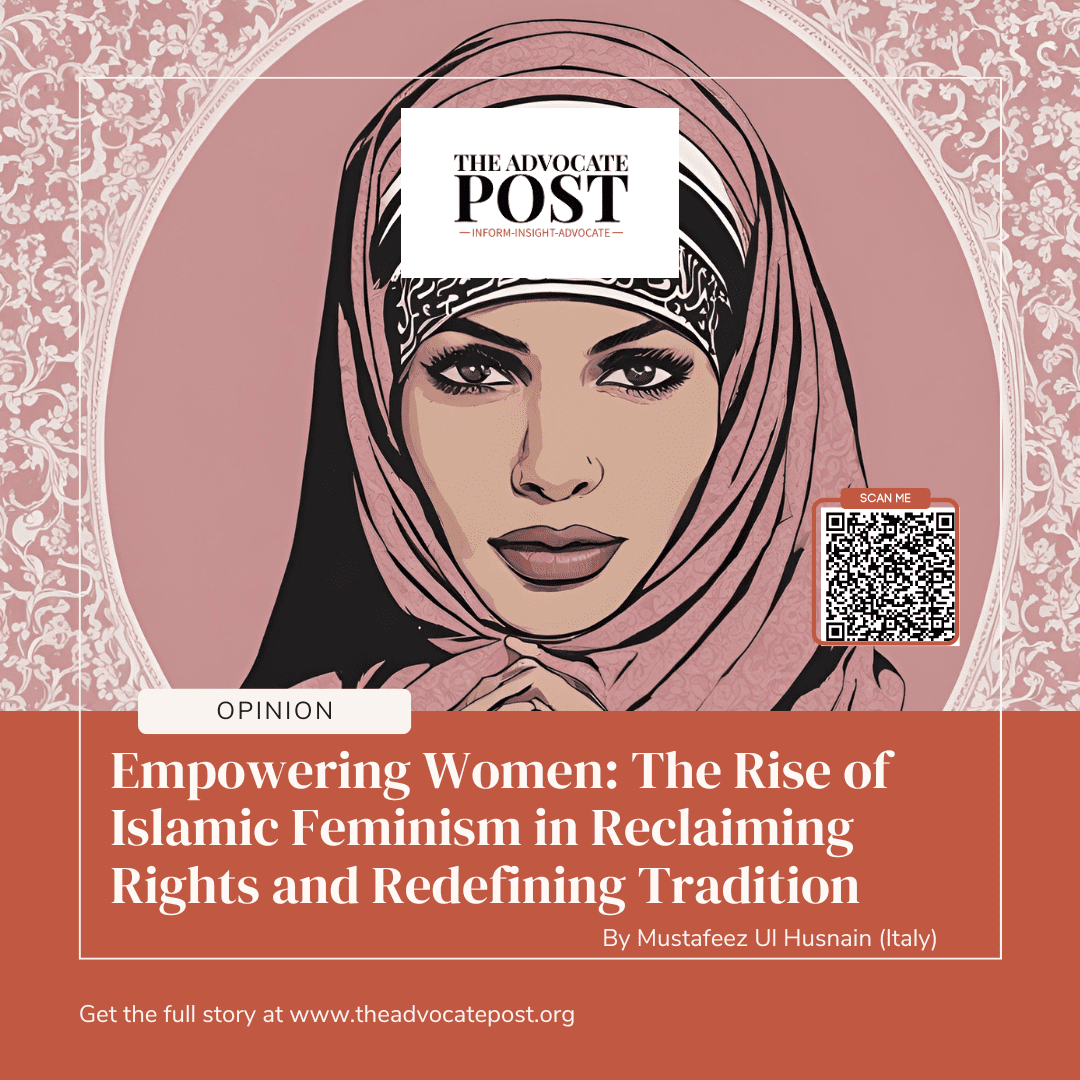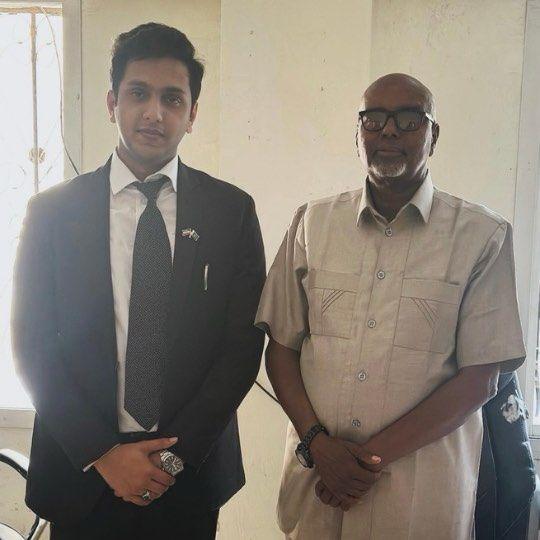By Mustafeez ul Husnain
A Woman is considered a cherished creation of Allah, endowed with dignity, intelligence, and spiritual worth equal to that of men. She is honoured as a mother, daughter, wife, and sister, entrusted with significant responsibilities in nurturing families and communities. Islam emphasizes the protection of women’s rights, including the right to education, employment, and autonomy within the bounds of Islamic principles. In a world where narratives about Islam and women’s rights often clash, a growing movement is reclaiming the narrative, asserting that empowerment and feminism can coexist harmoniously within Islamic principles. Islamic feminism, a movement rooted in the teachings of the Quran and the Hadith, is challenging traditional interpretations and advocating for gender equality, redefining what it means to be a woman in Islam.
Reframing Tradition
Islamic feminism is not a departure from Islamic tradition but rather a reinterpretation that aligns with the core values of justice and equality within Islam. As Prophet Muhammad (peace be upon him) stated in a Hadith,
“The best among you are those who are best to their wives.”
This Hadith emphasizes the importance of treating women with kindness and respect, laying the foundation for gender equality within the faith.
Empowering Women
Feminism aims to empower women by advocating for their rights in areas such as education, employment, and legal matters. It draws inspiration from verses in the Quran that emphasize the equal spiritual worth of men and women, such as Surah An-Nisa (4:32):
“And do not wish for that by which Allah has made some of you exceed others. For men is a share of what they have earned, and for women is a share of what they have earned.”
This verse highlights the principle of equity in the distribution of rights and responsibilities between genders.
Education and Knowledge
Education is central to Islamic feminism, as it enables women to challenge societal norms and advocate for their rights. The Prophet Muhammad (peace be upon him) emphasized the importance of seeking knowledge for both men and women, stating, “Seeking knowledge is obligatory upon every Muslim.” This Hadith underscores the equal importance of education for women, empowering them to contribute meaningfully to society.
Legal Reform
Islamic feminists advocate for legal reforms that address gender discrimination and promote women’s rights within the framework of Islamic law. They argue that many existing laws are based on cultural interpretations rather than authentic Islamic principles. As such, they work to reinterpret Islamic law in a way that upholds gender equality and justice. This aligns with the Quranic principle of justice, as stated in Surah An-Nisa(4:135):
“O you who have believed, be persistently standing firm in justice, witnesses for Allah, even if it be against yourselves or parents and relatives.”
Challenging Patriarchy
Islamic feminism challenges patriarchal interpretations of Islam that have marginalized women and restricted their rights. By reclaiming their religious identity and advocating for gender equality, women are challenging entrenched power structures and demanding a more inclusive and equitable society. This resonates with the words of Fatima al-Fihri, the founder of the world’s oldest university, who said,
“Do not underestimate the power of a woman with a book.”
In rural areas, women often face a myriad of challenges that hinder their access to rights and opportunities. Social issues such as limited access to education, healthcare, and employment opportunities exacerbate their plight. Despite Islam’s teachings emphasizing gender equality and women’s rights, rural societies often perpetuate patriarchal norms and traditions that marginalize women. Women in rural areas are frequently denied access to education due to cultural beliefs that prioritize male education. This lack of education perpetuates cycles of poverty and limits women’s ability to advocate for their rights. Additionally, limited access to healthcare services leaves women vulnerable to preventable illnesses and maternal mortality, further perpetuating their marginalization. Employment opportunities for rural women are often restricted to traditional roles such as domestic work or agricultural labor, with little opportunity for economic empowerment or career advancement. This economic dependence on male family members reinforces gender inequalities and limits women’s autonomy. In many rural societies, patriarchal interpretations of Islam are used to justify gender discrimination and restrict women’s rights. Cultural practices such as child marriage, forced veiling, and male guardianship perpetuate the subjugation of women, despite Islam’s emphasis on their dignity and autonomy. Furthermore, social stigma and ostracism often prevent women from speaking out against injustices or seeking support. Fear of retaliation and social isolation create barriers to accessing justice and support services, leaving women vulnerable to abuse and exploitation.
Conclusion:
In conclusion, Islamic feminism offers a compelling framework for empowering women within the Islamic tradition. By reframing tradition, advocating for women’s rights, promoting education and knowledge, pushing for legal reform, and challenging patriarchy, Islamic feminists are reclaiming their identity and reshaping the narrative around women in Islam. As the movement continues to grow, it serves as a beacon of hope for gender equality and justice within Muslim communities worldwide





